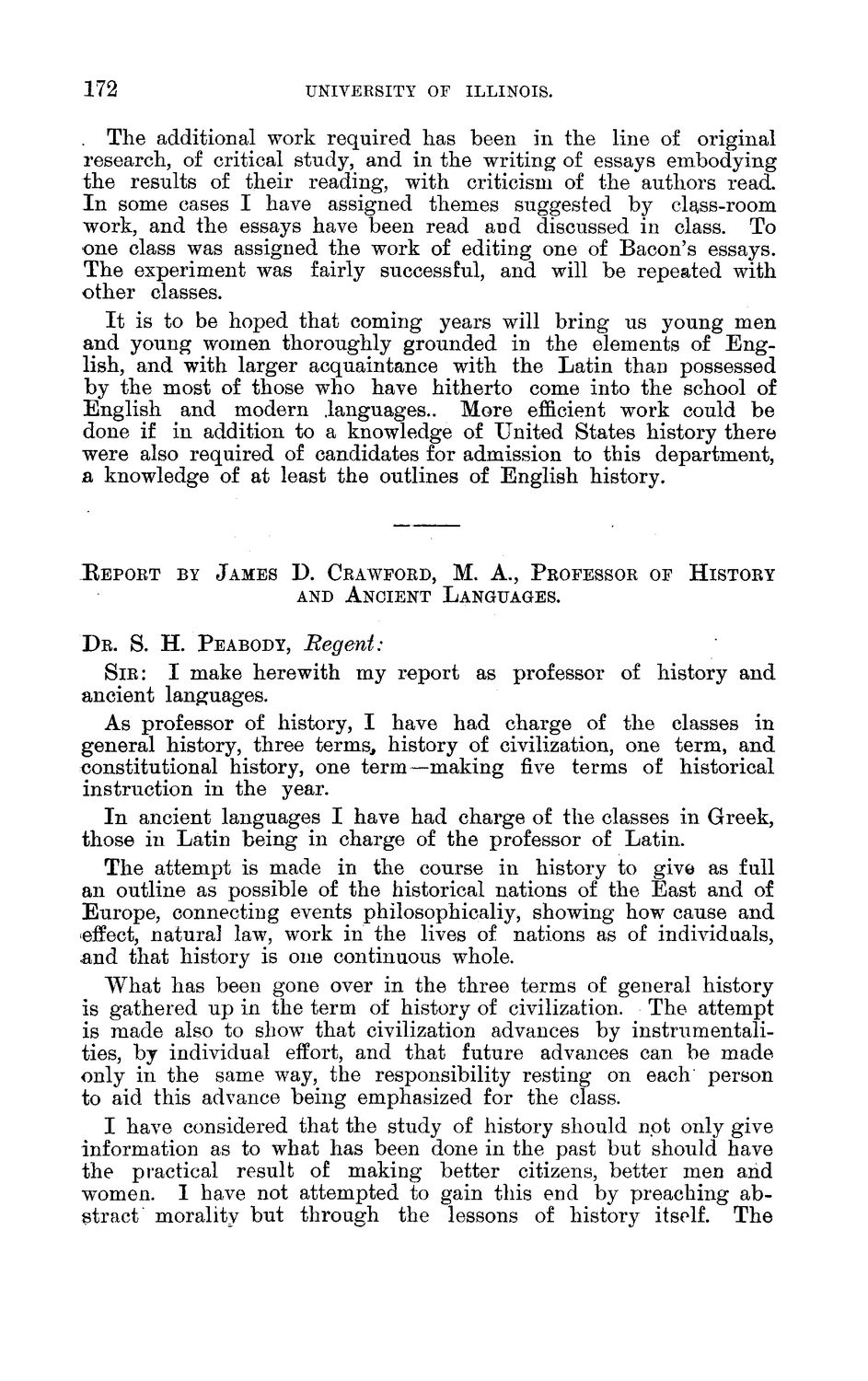| |
| |
Caption: Board of Trustees Minutes - 1888
This is a reduced-resolution page image for fast online browsing.

EXTRACTED TEXT FROM PAGE:
172 UNIVERSITY OF ILLINOIS. . The additional work required has been in the line of original research, of critical study, and in the writing of essays embodying the results of their reading, with criticism of the authors read. I n some cases I have assigned themes suggested by clstss-room work, and the essays have been read and discussed in class. To one class was assigned the work of editing one of Bacon's essays. The experiment was fairly successful, and will be repeated with other classes. I t is to be hoped that coming years will bring us young men and young women thoroughly grounded in the elements of English, and with larger acquaintance with the Latin thaD possessed by the most of those who have hitherto come into the school of English and modern .languages.. More efficient work could be done if in addition to a knowledge of United States history there were also required of candidates for admission to this department, a knowledge of at least the outlines of English history. EEPORT BY JAMES D. CRAWFORD, M. A., PROFESSOR OF AND ANCIENT LANGUAGES. HISTORY S. H. PEABODY, Regent: S I R : I make herewith my report as professor of history and ancient languages. As professor of history, I have had charge of the classes in general history, three terms, history of civilization, one term, and constitutional history, one term—making five terms of historical instruction in the year. I n ancient languages I have had charge of the classes in Greek, those in Latin being in charge of the professor of Latin. The attempt is made in the course in history to give as full an outline as possible of the historical nations of the East and of Europe, connecting events philosophically, showing how cause and effect, natural law, work in the lives of nations as of individuals, and that history is one continuous whole. What has been gone over in the three terms of general history is gathered up in the term of history of civilization. The attempt is made also to show that civilization advances by instrumentalities, by individual effort, and that future advances can be made only in the same way, the responsibility resting on each person to aid this advance being emphasized for the class. I have considered that the study of history should not only give information as to what has been done in the past but should have the practical result of making better citizens, better men and women. I have not attempted to gain this end by preaching abstract morality but through the lessons of history itself. The DR.
| |